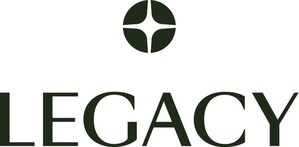Toxic Tobacco Trash Fails to Biodegrade, Putting Wildlife in Danger and Wreaking Havoc on U.S. Waterways, Parks, Beaches and Roadways
WASHINGTON, April 18, 2012 /PRNewswire-USNewswire/ -- Last year, according to 2011 The Tax Burden on Tobacco report, Americans purchased more than 287 billion cigarettes. A vast number of those cigarette butts, including the filters, will be flicked into the environment, landing along waterways, parks, beaches and public roads.
(Logo: http://photos.prnewswire.com/prnh/20101101/DC86294LOGO)
According to new research conducted by Legacy®, a public health non-profit located in Washington, DC, more than half of the Americans surveyed last month reported not knowing that cigarette butts are the number one littered item every year on U.S. roadways and beaches. In observance of Earth Day on April 22, Legacy is working to raise awareness about the negative impact cigarette filters and discarded cigarette butts have on the environment. Cigarette butts contain heavy metals that can leach into waterways, posing a lethal threat to aquatic life. They are costly to local communities to clean up and dispose of as well.
According to environmental cleanup reports, nearly 2 million cigarettes or cigarette filters/butts were picked up internationally from beaches and inland waterways as part of the annual International Coastal Cleanup (ICC) in 2010, including more than one million from the United States alone. Cigarette butts account for more than three times the number of any other item found over the past 25 years of ICC cleanups. Research shows that cigarette butts have potentially toxic effects on ecosystems. In one laboratory test, one cigarette butt soaked in a liter of water was lethal to half of the fish exposed.
Cigarette butts are made mostly of plastic, which can take years to decompose in the marine environment and down into smaller pieces. While a majority of the respondents surveyed nationally (78 percent) know that cigarette butts are not typically biodegradable and recognize their toxicity (89 percent), tobacco products are still the most prevalent type of litter collected along U.S. roadways and on beaches. These toxic pieces of trash are only biodegradable under ideal conditions and in "real world" conditions, they merely break up into small particles of plastic.
"If more than 287 billion cigarettes were sold last year, where did all those butts go?" said Cheryl G. Healton, DrPH, President and CEO of Legacy. "Cigarette manufacturers acknowledge that there is no such thing as a safe cigarette and have long known that cigarette filters don't reduce health consequences of smoking and are a major source of coastal litter." Cigarettes and their butts contain carcinogenic chemicals that make tobacco use the leading cause of preventable death in the United States and globally.
Cigarette litter clean-up costs can be substantial to local authorities. The Legacy poll also found that the majority (73 percent) of those surveyed believe that smokers should be responsible for cleaning up and disposing of cigarette butts after they smoke.
"Cigarette butts are commonly, unconsciously and inexcusably dumped into the global environment every year," said Dr. Holly Bamford, Deputy Assistant Administrator for the National Ocean Service at National Oceanic and Atmospheric Association. "Once these filters make their way into our oceans, they could be mistaken for food and ingested by birds and marine life, which could cause them to choke or starve to death. We have to begin to change social norms so that just like every other form of litter, it is unacceptable to drop plastic cigarette butts anywhere other than proper receptacles," she said.
Cigarette filters/butts have become the last socially acceptable form of littering in the increasingly health and environmentally conscious world. There are a few things that people can do to help raise awareness about this toxic problem:
- If you see cigarette butt litter, please take a photo and upload it to the Marine Debris tracker: http://www.marinedebris.engr.uga.edu/
- Join a cleanup event, or download the toolkit for more information about organizing an event or building awareness in local communities: http://www.legacyforhealth.org/PDF/Environmental_Toolkit.pdf
- Read more information on the environmental impact of cigarettes visit: www.legacyforhealth.org/environment.
This survey was conducted using Research Now's online Consumer Omnipulse Survey during the week of March 5, 2012 among a sample of 1,200 adults comprising 562 men and 638 women 18 years of age and older. The online omnibus study is conducted once a week among a demographically representative U.S. sample of 1,200 adults 18 years of age and older using the Research Now® Consumer Panel. The sample framework is selected based on U.S. Census data for age, ethnicity, gender, region, and income. They also collect and provide demographic data on educational level and marital status.
Legacy helps people live longer, healthier lives by building a world where young people reject tobacco and anyone can quit. Legacy's proven-effective and nationally recognized public education programs include truth®, the national youth smoking prevention campaign that has been cited as contributing to significant declines in youth smoking; EX®, an innovative public health program designed to speak to smokers in their own language and change the way they approach quitting; and research initiatives exploring the causes, consequences and approaches to reducing tobacco use. Located in Washington, D.C., the foundation was created as a result of the November 1998 Master Settlement Agreement (MSA) reached between attorneys general from 46 states, five U.S. territories and the tobacco industry. To learn more about Legacy's life-saving programs, visit www.LegacyForHealth.org.
Follow us on Twitter @legacyforhealth and Facebook www.Facebook.com/Legacy.
SOURCE Legacy
WANT YOUR COMPANY'S NEWS FEATURED ON PRNEWSWIRE.COM?
Newsrooms &
Influencers
Digital Media
Outlets
Journalists
Opted In





Share this article